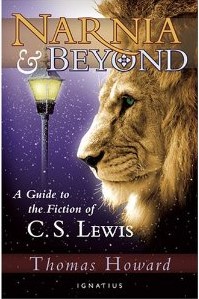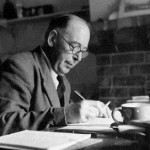[powerpress]
Episode 6- Great Works in Western Literature with Joseph Pearce – Jonathan Swift
Gulliver’s Travels by Jonathan Swift is one of the greatest satirical works ever written. Through the misadventures of 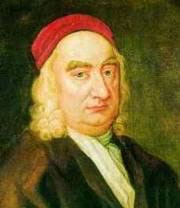 Lemuel Gulliver, his hopelessly “modern†protagonist, Swift exposes many of the follies of the English Enlightenment, from its worship of science to its neglect of traditional philosophy and theology. Swift’s satire on the threats posed by the Enlightenment and the embryonic spirit of secular fundamentalism makes Gulliver’s Travels priceless reading for today’s defenders of tradition.
Lemuel Gulliver, his hopelessly “modern†protagonist, Swift exposes many of the follies of the English Enlightenment, from its worship of science to its neglect of traditional philosophy and theology. Swift’s satire on the threats posed by the Enlightenment and the embryonic spirit of secular fundamentalism makes Gulliver’s Travels priceless reading for today’s defenders of tradition.
Based on the Ignatius Critical Edition, this series examines, from the Judeo-Christian perspective, the life,the times, and influence of authors of great works in literature .

Joseph Pearce is currently the Writer-in-Residence and Visiting Fellow at Thomas More College of Liberal Arts in Merrimack, New Hampshire. He is also Visiting Scholar at Mount Royal Academy in Sunapee, New Hampshire. He is also Visiting Scholar at Mount Royal Academy in Sunapee, New Hampshire. He is  co-editor of the Saint Austin Review (or StAR), an international review of Christian culture, literature, and ideas published in England (Family Publications) and the United States (Sapientia Press). He is also the author of many books, including literary biographies of Solzhenitsyn, J. R. R. Tolkien, C. S. Lewis, G. K. Chesterton, and Oscar Wilde..
To learn more about the authors and titles available in the Ignatius Critical Editions
Tags: ave maria university, catholic, catholic podcast, catholic prayer, cathollc spirituality, English Enlightenment, ignatius press, ignatius press critical editions, jonathan swift, joseph pearce, Lemuel Gulliver, literary biographies, sapientia press, theology, works
This entry was posted on Monday, December 29th, 2014 at 8:20 am
You can follow any responses to this entry through the RSS 2.0 feed.
Episode 2 – Great Works in Western Literature with Joseph Pearce – Emily Bronte [powerpress]
[powerpress]
Wuthering Heights is one of the classic novels of nineteenth century romanticism. As a major work of modern literature it retains its controversial status. What was Emily Brontë’s intention? Were her 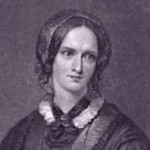 intentions iconoclastic? Were they feminist? Were they Christian or post-Christian? Who are the heroes and the villains in this dark masterpiece? Are there any heroes? Are there any villains?
intentions iconoclastic? Were they feminist? Were they Christian or post-Christian? Who are the heroes and the villains in this dark masterpiece? Are there any heroes? Are there any villains?
 Based on the Ignatius Critical Edition, this series examines, from the Judeo-Christian perspective, the life,the times, and influence of authors of great works in literature .
Based on the Ignatius Critical Edition, this series examines, from the Judeo-Christian perspective, the life,the times, and influence of authors of great works in literature .
Joseph Pearce is currently the Writer-in-Residence and Visiting Fellow at Thomas More College of Liberal Arts in Merrimack, New Hampshire. He is also Visiting Scholar at Mount Royal Academy in Sunapee, New Hampshire. He is also Visiting Scholar at Mount Royal Academy in Sunapee, New Hampshire. He is  co-editor of the Saint Austin Review (or StAR), an international review of Christian culture, literature, and ideas published in England (Family Publications) and the United States (Sapientia Press). He is also the author of many books, including literary biographies of Solzhenitsyn, J. R. R. Tolkien, C. S. Lewis, G. K. Chesterton, and Oscar Wilde.
To learn more about the authors and titles available in the Ignatius Critical Editions
Tags: ave maria university, catholic, catholic podcast, catholic prayer, cathollc spirituality, emily bronte, ignatius press, ignatius press critical editions, joseph pearce, literature, oscar wilde, work, works, wuthering heights
This entry was posted on Wednesday, October 1st, 2014 at 11:36 am
You can follow any responses to this entry through the RSS 2.0 feed.
Works of the Law
[powerpress]
In Romans and Galatians, St. Paul warns about those trying to justify themselves before God by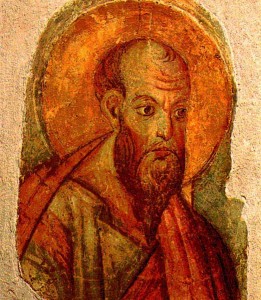 following the works of the Law.Â
following the works of the Law.Â
To properly understand this, we must look at the historical context. As we read in the Acts, there was a group in the early Church called the “Judaizers,â€1 which taught that Gentile converts to Christianity must be circumcised and follow the kosher laws.
Paul says in no uncertain terms that those trying to be saved through these Old Testament works of the Law have rejected Christ and lost their salvation.
The attitude of the Judaizers is contrasted with the faith of Abraham,2 who trusted and obeyed God even to the point of offering his own son, Isaac. Paul’s point is not that our works have no bearing on our salvation, but rather that these particular Jewish rituals were not necessary for eternal life.
For the same Romans that teaches “a man is justified by faith apart from works of the law,â€3 also says that God “shows no partiality … [for] he will render to everyone according to his works..†4
There is no contradiction, as long as we correctly understand what Paul meant by the works of the law.
1 -Â cf. Acts 15:1-6, etc.
2 -Â Rom. 4:1ff
3 -Â 3:28
4 -Â 2:6-10
Tags: catholic apologetics, eternal life, faith, Faith Check, law, st. paul, works
This entry was posted on Monday, November 25th, 2013 at 7:06 am
You can follow any responses to this entry through the RSS 2.0 feed.
To Nanna, daughter of Benincasa, a little maid, her niece, in Florence:
 Now, then, we must have light–otherwise it would not be enough. This light has to be the light of most holy faith. But the saints say that faith without works is dead. Therefore we need to exert ourselves virtuously all the time, and leave our childishness and vanities, and not behave any longer like worldly girls, but like faithful brides consecrated to Christ crucified; in this way we shall have a lamp, and oil, and light.
Heavenly Father, your glory is in your saints. We praise your glory in the life of the admirable St. Catherine of Siena, virgin and doctor of the Church. Her whole life was a noble sacrifice inspired by an ardent love of Jesus, your unblemished Lamb. In troubled times she strenuously upheld the rights of His beloved spouse, The Church. Father, honor her merits and hear her prayers for each of us. Help us to pass unscathed through the corruption of this world, and to remain unshakably faithful to the church in word, deed, and example. Help us always to see in the Vicar of Christ an anchor in the storms of life, and a beacon of light to the harbor of your Love, in this dark night of your times and men’s souls. Grant also to each of us our special petition . . . (pause to pray for your own intentions). We ask this through Jesus, your Son, in the bond of the Holy Spirit. Amen.
St. Catherine of Siena, Pray for us.
For the complete novena visit the St. Catherine of Siena Novena Page
Tags: faith, Jesus, saints, works
This entry was posted on Wednesday, April 24th, 2013 at 12:02 am
You can follow any responses to this entry through the RSS 2.0 feed.
To say that Sigrid Undset is compelling would be an understatement. Catholic convert, 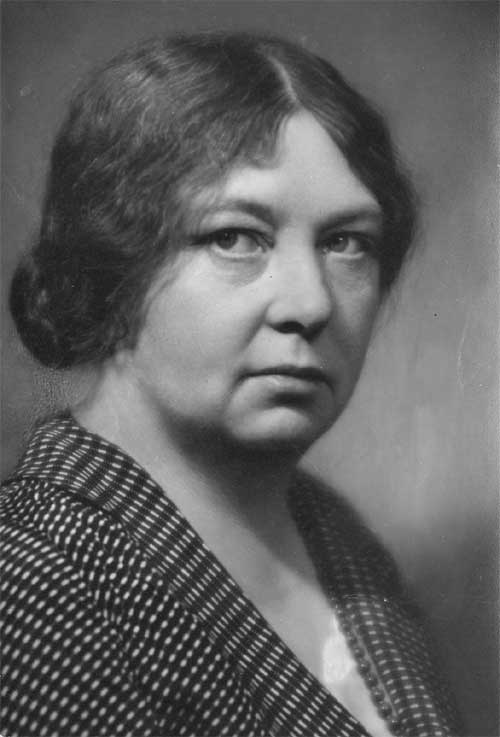 Nobel Prize winning Norwegian novelist , her works invoke the poignancy of the fall and the hope that is found in the act of redemptive suffering. “Ida Elisabeth” is a tremendous work. Great literature helps us practice the virtues. We may never encounter the situations the characters do, but watching how they navigate through the emotions and morals of the moments, help us to exercise our own virtues and responses to the underlying sin that propels the characters forward…and helps us to avoid recognize in some way the traps laid before us.
Nobel Prize winning Norwegian novelist , her works invoke the poignancy of the fall and the hope that is found in the act of redemptive suffering. “Ida Elisabeth” is a tremendous work. Great literature helps us practice the virtues. We may never encounter the situations the characters do, but watching how they navigate through the emotions and morals of the moments, help us to exercise our own virtues and responses to the underlying sin that propels the characters forward…and helps us to avoid recognize in some way the traps laid before us.
[powerpress]
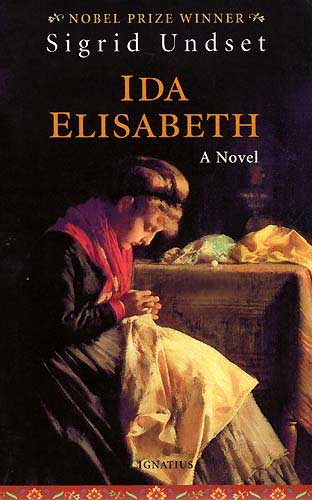 Vivian Dudro joins us once again to discuss Sigrid Undset, her life and her times, and some other works of this important author.
Vivian Dudro joins us once again to discuss Sigrid Undset, her life and her times, and some other works of this important author.
You can find the book here
“Undset is a realist in the truest sense of the word. She sees the real world in which people face the bitter consequences of selfish choices and in which suffering is unavoidable and yet potentially redemptive. In her acclaimed historical fiction, Undset shows us that the acceptance of suffering is the beginning of wisdom and also, paradoxically, the path to peace and lasting joy.”
- Joseph Pearce, Author, The Quest for Shakespeare
Tags: catholic, catholic podcast, catholic prayer, cathollc spirituality, ignatius press, joseph pearce, Sigrid Undset, suffering, works
This entry was posted on Monday, February 13th, 2012 at 10:38 am
You can follow any responses to this entry through the RSS 2.0 feed.
Episode 1 – Great Works in Western Literature with Joseph Pearce – Introduction to the Series
Based on the Ignatius Critical Edition, this series examines, from the Judeo-Christian perspective, the life, the times, and influence of authors of great works in literature .
Joseph Pearce is currently the Writer-in-Residence and Visiting Fellow at Thomas More College of Liberal Arts in Merrimack, New Hampshire. He is also Visiting Scholar at Mount Royal Academy in Sunapee, New Hampshire. He is also Visiting Scholar at Mount Royal Academy in Sunapee, New Hampshire. He is co-editor of the Saint Austin Review (or StAR), an international review of Christian culture, literature, and ideas published in England (Family Publications) and the United States (Sapientia Press). He is also the author of many books, including literary biographies of Solzhenitsyn, J. R. R. Tolkien, C. S. Lewis, G. K. Chesterton, and Oscar Wilde.
To learn more about the authors and titles available in the Ignatius Critical Editions
Tags: ave maria university, catholic, catholic podcast, catholic prayer, cathollc spirituality, christian perspective, critical edition, culture literature, ignatius press, joseph pearce, literary biographies, Mount Royal Academy, New Hampshire, oscar wilde, works
This entry was posted on Sunday, February 6th, 2011 at 10:33 pm
You can follow any responses to this entry through the RSS 2.0 feed.
“Narnia And Beyond: A Guide to the Fiction of C. S. Lewis” by Thomas Howard is fantastic.  Dr. Howard is regarded as one of the leading authorities on the works of C. S. Lewis, and with remarkable clarity he shares with us all the Lewis that has touched the hearts and minds of so many generations, both young and old. It is always a joy to talk with Thomas Howard, but this conversation was particularly enlightening.
Dr. Howard is regarded as one of the leading authorities on the works of C. S. Lewis, and with remarkable clarity he shares with us all the Lewis that has touched the hearts and minds of so many generations, both young and old. It is always a joy to talk with Thomas Howard, but this conversation was particularly enlightening.
[powerpress]
You can check out the book at igantius.com
Tags: c s lewis, catholic, catholic podcast, catholic prayer, cathollc spirituality, hearts, ignatius press, joy, leading authorities, narnia, thomas howard, works
This entry was posted on Thursday, December 9th, 2010 at 4:37 pm
You can follow any responses to this entry through the RSS 2.0 feed.


